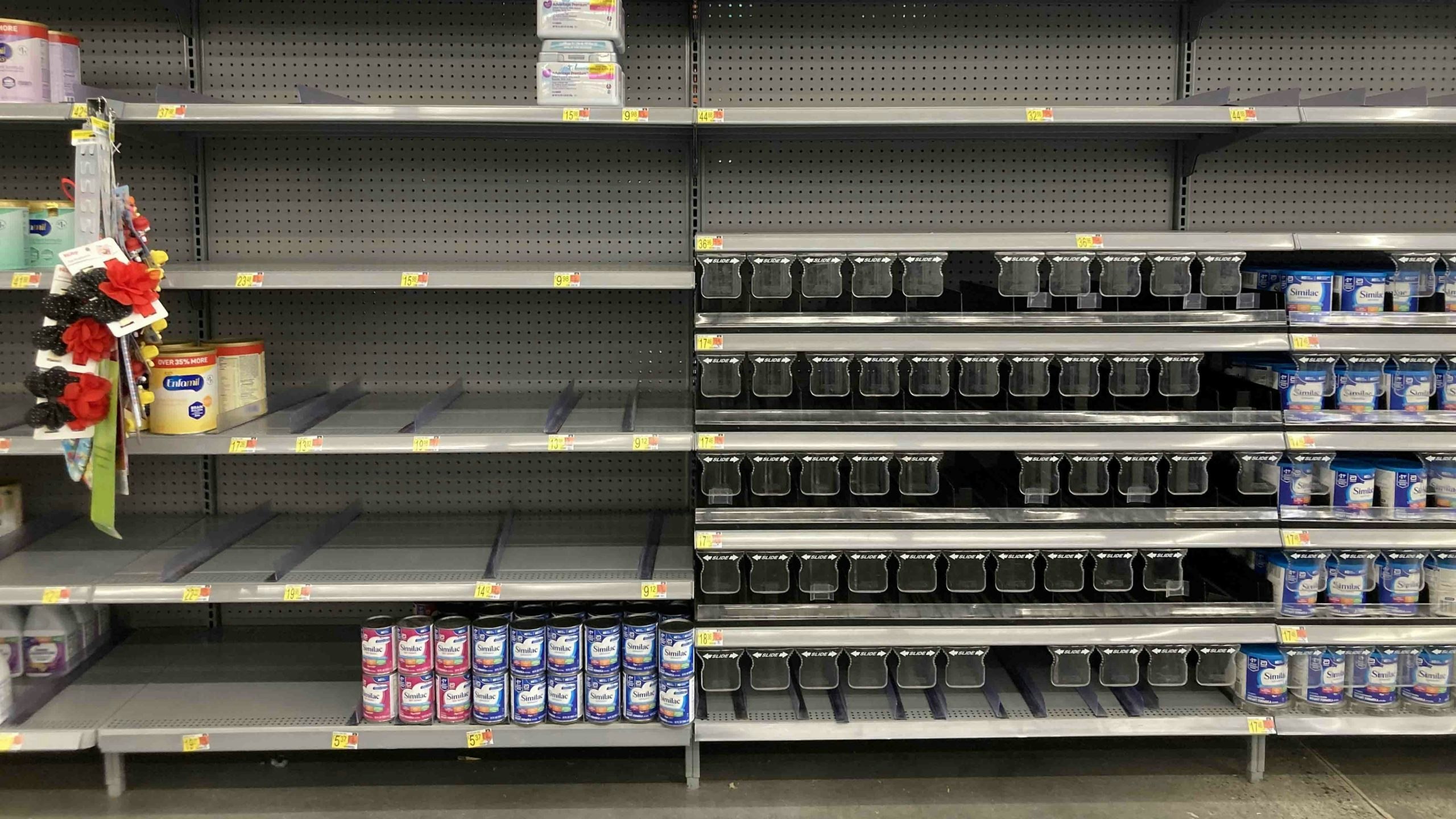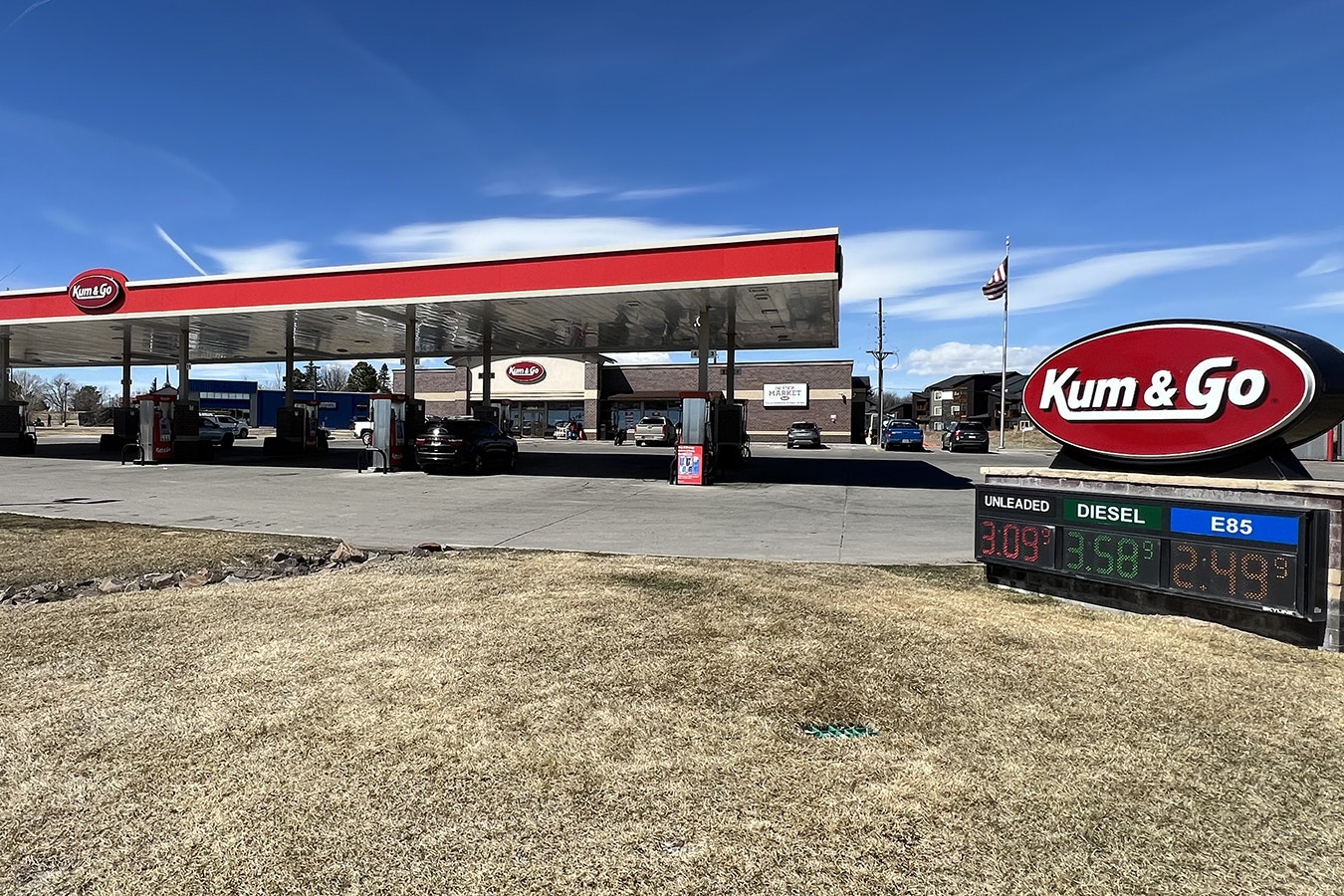Lillian Rodriguez got lucky.
When the Casper mother of 3-month-old twins heard about the recall of Similac Sensitive baby powder formulas in mid-February, she had 10 small cans of the formula that she hadn’t yet opened.
Rodriguez is grateful that she had not fed any of the potentially tainted formula to her infants and was able to return it through the recall.
Grocery stores across the country are reporting shortages of baby formula with the decision of Abbott Nutrition, the Michigan-based manufacturer of Similac, Alimentum and Elecare, to voluntarily recall the products on Feb. 17 because of concerns over possible bacterial contamination.
Since the recall, Rodriguez hasn’t been able to find Similac Sensitive on shelves, but has since switched formula to Enfamil Gentlease.
This, too, has been hard to find on occasion, she said, but since the recall, she’s made a point to stock up on the replacement formula and currently has about a six-week supply.
“Right now, the supply is pretty good,” she said. “I knew we were going to have a shortage, so I breastfed them for two months and have about six big cans and a couple small ones and continue to buy whatever I can.”
Usually, she can’t find it at larger box stores like Walmart but occasionally has luck at smaller grocery stories like Ridley’s or Target, she said.
Abbott’s recall came after the U.S. Food and Drug Administration reported that five infants had become sick from illnesses related to cronobacter sakazakii, a bacteria that causes serious infections in some infants.
The FDA closed Abbott’s manufaturing plant in Sturgis, Michigan, while it and the Centers for Disease Control and Prevention investigated the facility.
On May 12, the CDC announced that its investigation was over after no additional cases were identified, though the FDA continues its investigation as the production facility remains closed, according to a recent update from the FDA. Abbott announced last week the plant could be back up and running by the end of the month.
The shutdown exacerbated a formula shortage blamed on supply chain problems stemming from the COVID-19 pandemic. As of May 10, out-of-stock shortages nationwide had risen to 43%, according to Datasembly, a data collection company that provides real-time product pricing, promotions, and assortment data for retailers.
Some of the larger retailers are limiting in-store purchases to three cans to help prevent stockpiling as supply shortages continue.
In Wyoming, the empty spaces on the shelves are noticeable in stores throughout the state.
Like Rodriguez, other mothers are scrambling to stock up on infant formula for fear of running out and in preparation for more possible shortages in the future.
Katharine Wilkinson, a Cheyenne attorney and mother of four, said supplies are limited so when she sees formula in a store, she grabs it.
“I buy it every chance I get because formula is my only option,’ Wilkinson said, whose youngest turned 4 months old on Sunday. “I don’t want to run out. Sam’s and Target limit how much you can get, and they are usually out of stock.”
Even mothers like Kayla Strid of Cody whose babies are not affected by the formula shortage worry that it’s only a matter of time before desperate parents begin turning to other products to feed their children.
Strid’s switched her 9-month-old to soy formula back in January because he wasn’t tolerating anything else, and she’s had no problem finding it on the shelves so far. She said she feels lucky he wasn’t on Gentlease or any of the hard-to-find formulas.
“I’m really scared that people who can’t find their brand will turn to soy milk,” she said.
If the soy disappears, Strid will have to try goat’s milk, she said, and she’s a bit worried about that. She also receives subsidies from state’s Special Supplemental Nutrition Program for Women, Infants, and Children (WIC) program that allows her seven small cans of soy formula a month, which doesn’t cover her son’s needs for the month.
Supply Challenges
The Wyoming WIC program allows clients to buy infant formula from local stores using their benefit cards. For clients who need to purchase specialty formulas for their infants for medical reasons, the program orders and provides the formulas directly, according to Kim Deti, public information officer for the Wyoming Department of Health (WDH).
The program serves more than 1,100 infants.
“Regarding the current situation, the program has had challenges since the announcement of the Abbott recall,” Deti said. “WIC staff has been communicating and working with program clients about infant formula supplies since the recall was announced. Steps taken have included expanding options approved for formula purchased (brands and sizes) using WIC benefits.”
Unfortunately, Deti noted, the program is also seeing shortages in locations across the state for almost all formula options, with staff continually trying to order and provide formula directly through WIC clinics to client families unable to find the formulas in their local stores.
“The biggest issue is with specialty formulas certain children need for medical reasons,” she said. “Staff continues trying to order all types of formula from various online sources or directly through manufacturers, but with very limited success. What they can find, they are purchasing for distribution through clinics.”
Assistance
The shortage has prompted some to provide help by selling breastmilk online.
Cheyenne resident Mackenzee Shultz has offered to start pumping and selling her breastmilk through a Facebook group, Cheyenne Community Connections.
She told Cowboy State Daily she wanted to help because she saw friends from all over the country struggling to find the proper formula for their babies.
“I’m a stay-at-home mom who could possibly dedicate a lot more time to breast pumping,” she said. “I did my research on how you can make your body start pumping again.”
Shultz has three children, the youngest of which is 1. Although she has had issues with pumping and nursing in the past, she wanted to do her part to help parents in need.
“If people need the milk, and I can make it, then I want to do what I can,” she said. “We should all think about doing it right now, more than ever.”
Since she is putting in both time and effort to generate breastmilk, she would like to be compensated for it, she said.
She did not say if anyone had taken her up on her offer, but her Facebook post generated a significant amount of interest, both from exhausted mothers in need and supportive community members who cheered on Shultz for her generosity.
Cheyenne Regional Medical Center spokeswoman Kathy Baker told Cowboy State Daily on Monday there has not been an increase in breastmilk donations to the hospital’s Human Milk Donation and Outreach Center.
The Human Milk 4 Human Babies’ Wyoming chapter, which partners milk donors with babies in need, did not immediately respond to Cowboy State Daily’s request for comment on Monday.
Biden Administration Getting Involved
President Joe Biden announced on May 12 that his administration is working with retailers and manufacturers to explore ways to get more infant formula to families, according to a statement from his office.
The 20 specialty formulas in short supply are used by about 5,000 infants nationwide, the statement said, as well as some older children and by adults with rare metabolic disorders.
Some of the steps taken by his administration include cutting red tape to get infant formula to store shelves more quickly by simplifying product offerings and speeding up production, as well as working with state agencies to make it easier for families in need to purchase formulas with their WIC benefits.
The administration is also calling on state attorneys general and the Federal Trade Commission to crack down on price gouging and other unscrupulous online retailers jacking up their prices.
Other measures include increasing imports from trading partners in Mexico, Chile, Ireland and the Netherlands. Typically, the U.S. produces about 98% of the infant formulas consumed in the country, but the FDA is urging these other countries to step up their imports of these products.





